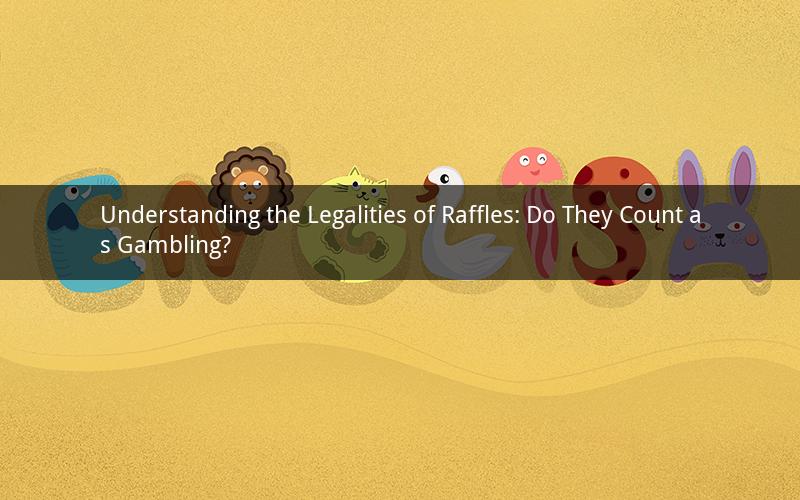
Raffles have long been a popular fundraising method, often associated with charity events, schools, and even corporate functions. However, many people are unsure whether raffles can be considered as a form of gambling. In this article, we will delve into the legal aspects of raffles and determine if they should be classified as gambling.
1. What is a Raffle?
A raffle is a contest in which participants purchase tickets for the chance to win prizes. These events are typically conducted by organizations to raise funds for a specific cause or purpose. Prizes can vary from small items like gift cards to more substantial rewards such as cars or holidays.
2. The Distinction Between Raffles and Gambling
The primary difference between a raffle and gambling lies in the nature of the prize. In a raffle, the prize is predetermined and offered to the winner, whereas in gambling, the outcome of the game is based on chance, and the prizes are not predetermined.
3. Legal Considerations
The legality of raffles varies from one country to another, and even within countries, the regulations can differ from one state or province to another. However, there are several key factors that determine whether a raffle is considered gambling or not.
a. The Presence of Chance
In most jurisdictions, the presence of chance is a crucial factor in determining whether an activity is considered gambling. Since raffles involve the element of chance, this aspect is often present. However, the degree of chance can vary significantly.
b. The Purpose of the Event
In many cases, the purpose of the event is used to determine whether a raffle is legal. If the raffle is conducted for a charitable or non-profit cause, it is more likely to be considered legal. On the other hand, if the raffle is conducted for personal gain or profit, it may be classified as gambling.
c. The Regulation of Raffles
In some countries, raffles are regulated by government authorities, such as the lottery commission. These authorities may set specific rules and guidelines for conducting raffles, which can help determine their legality.
4. Examples of Legal Raffles
a. Charitable Events
Charitable events often use raffles as a fundraising tool. Since the primary purpose of these events is to raise funds for a good cause, they are generally considered legal. Examples include school auctions, charity galas, and fundraising events for hospitals.
b. Corporate Functions
Corporate functions, such as employee appreciation events or client appreciation days, may also include raffles as part of their activities. These events are typically considered legal as long as the proceeds are used for non-profit purposes.
5. Examples of Illegal Raffles
a. Private Parties
Private parties that charge an entry fee and offer prizes to participants may be considered illegal raffles. These events are often conducted for personal gain or profit, which is a key factor in determining their legality.
b. Online Raffles
Online raffles can be more challenging to regulate, but they are often considered illegal if they involve real money or have a high degree of chance. Additionally, if the raffle is not conducted by a registered charity or non-profit organization, it may be deemed illegal.
6. Conclusion
In conclusion, whether a raffle is considered gambling depends on various factors, including the presence of chance, the purpose of the event, and the regulatory environment. While many raffles are legal and widely accepted as a means of fundraising, it is essential to understand the specific laws and regulations in your jurisdiction to ensure compliance.
Questions and Answers:
1. Q: Can a raffle be considered legal if it is conducted for personal gain?
A: Generally, no. If a raffle is conducted for personal gain or profit, it is more likely to be considered illegal gambling.
2. Q: Are online raffles legal in all countries?
A: No, the legality of online raffles varies by country. It is important to check the specific regulations in your jurisdiction before organizing or participating in an online raffle.
3. Q: Can a raffle be classified as both legal and illegal, depending on the circumstances?
A: Yes, the legality of a raffle can vary depending on the specific circumstances, such as the purpose of the event, the presence of chance, and the regulatory environment.
4. Q: Are raffles considered gambling in all cases where the outcome is based on chance?
A: No, not all events based on chance are considered gambling. The key factor is the purpose of the event and whether the prizes are predetermined.
5. Q: Can a raffle be conducted without the presence of chance?
A: It is challenging to conduct a raffle without the element of chance. The nature of a raffle involves participants purchasing tickets for the chance to win prizes, which inherently involves chance.